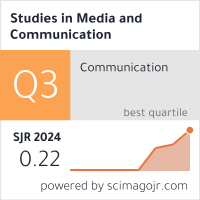Dilemma of Empowerment: Responsibility Attribution in Prison Counseling
Abstract
Prison counseling as a new intervening tool to reform inmates in China has provided a site in which inmates could have more rights to confidentiality or equality and be motivated towards positive change. In actual practice, however, there are occasions in which the police counselors do not seem to act as facilitators and helpers as they are supposed to. This paper, drawing on discursive psychology, looks into how the police counselors attribute responsibility for the problems that drive the inmate clients to the counseling by focusing on variant cases. Analysis reveals that two main discursive devices, tag questions and reformulation, are employed by the police counselors in an attempt to deflect responsibility for the problems of the inmate clients and the solution to these problems from the prison and stakeholders within the prison. Prison counseling is caught in a dilemma of empowerment.
Full Text:
PDFDOI: https://doi.org/10.11114/smc.v2i1.347
Refbacks
- There are currently no refbacks.
Studies in Media and Communication ISSN 2325-8071 (Print) ISSN 2325-808X (Online)
Copyright © Redfame Publishing Inc.
To make sure that you can receive messages from us, please add the 'redfame.com' domain to your e-mail 'safe list'. If you do not receive e-mail in your 'inbox', check your 'bulk mail' or 'junk mail' folders.
If you have any questions, please contact: smc@redfame.com
------------------------------------------------------------------------------------------------------------------------------------------------------

